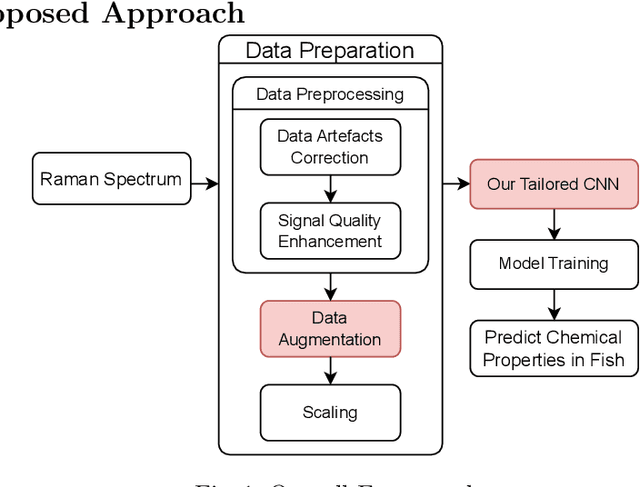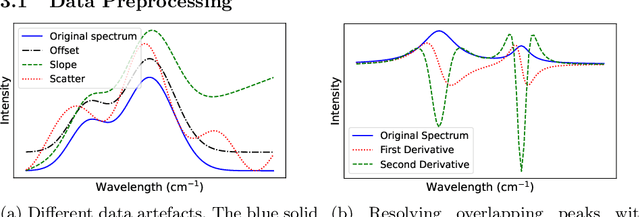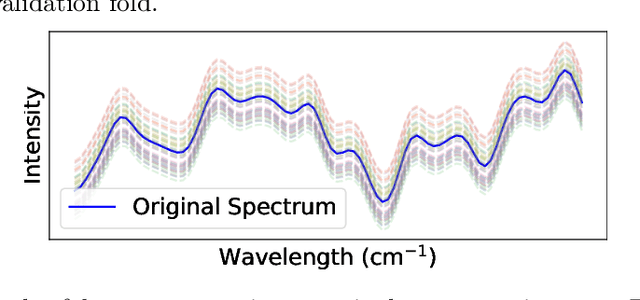Keith C. Gordon
Symbolically Regressing Fish Biomass Spectral Data: A Linear Genetic Programming Method with Tunable Primitives
May 28, 2025Abstract:Machine learning techniques play an important role in analyzing spectral data. The spectral data of fish biomass is useful in fish production, as it carries many important chemistry properties of fish meat. However, it is challenging for existing machine learning techniques to comprehensively discover hidden patterns from fish biomass spectral data since the spectral data often have a lot of noises while the training data are quite limited. To better analyze fish biomass spectral data, this paper models it as a symbolic regression problem and solves it by a linear genetic programming method with newly proposed tunable primitives. In the symbolic regression problem, linear genetic programming automatically synthesizes regression models based on the given primitives and training data. The tunable primitives further improve the approximation ability of the regression models by tuning their inherent coefficients. Our empirical results over ten fish biomass targets show that the proposed method improves the overall performance of fish biomass composition prediction. The synthesized regression models are compact and have good interpretability, which allow us to highlight useful features over the spectrum. Our further investigation also verifies the good generality of the proposed method across various spectral data treatments and other symbolic regression problems.
Machine Learning for Raman Spectroscopy-based Cyber-Marine Fish Biochemical Composition Analysis
Sep 29, 2024



Abstract:The rapid and accurate detection of biochemical compositions in fish is a crucial real-world task that facilitates optimal utilization and extraction of high-value products in the seafood industry. Raman spectroscopy provides a promising solution for quickly and non-destructively analyzing the biochemical composition of fish by associating Raman spectra with biochemical reference data using machine learning regression models. This paper investigates different regression models to address this task and proposes a new design of Convolutional Neural Networks (CNNs) for jointly predicting water, protein, and lipids yield. To the best of our knowledge, we are the first to conduct a successful study employing CNNs to analyze the biochemical composition of fish based on a very small Raman spectroscopic dataset. Our approach combines a tailored CNN architecture with the comprehensive data preparation procedure, effectively mitigating the challenges posed by extreme data scarcity. The results demonstrate that our CNN can significantly outperform two state-of-the-art CNN models and multiple traditional machine learning models, paving the way for accurate and automated analysis of fish biochemical composition.
 Add to Chrome
Add to Chrome Add to Firefox
Add to Firefox Add to Edge
Add to Edge